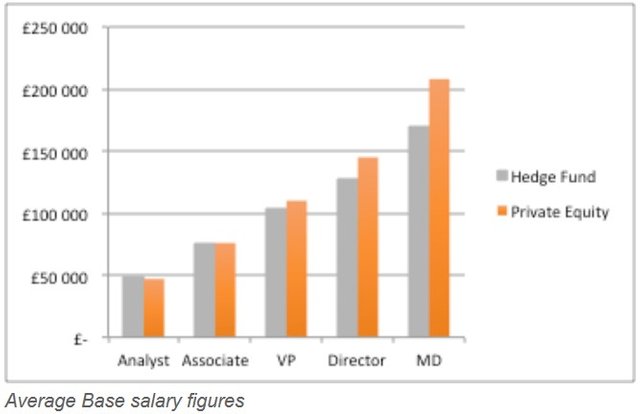choosing a Finance career.Private Equity vs Hedge fund
Career in the world of finance and business is lucrative and rewarding.but difficulties araises on choosing a career pathway. The difference between private equity and hedge fund is explain to help us build a elasting career based on hour of work,salary and bonus,risk involved,and qualification needed to break into these outstanding careers Private equity vs hedge fund
There are several important points to know about the similarities and differences of private equity vs hedge fund. This guide will outline the main points below, for anyone planning their career path in corporate finance .
Both career paths require extensive financial modeling and valuation methods performed by financial analysts.
The main differences of private equity vs hedge fund are listed below:
#1 Investment Time Horizon
In terms of private equity vs hedge fund, first and the foremost differences are in terms of time horizon. Hedge funds invest in assets which can give them good returns in short-term. They prefer liquid assets so that they can shift from one investment to another quickly. Private Equity funds on other hand are not interested in quick returns. Their focus is on investing in those unlisted companies which have the potential to provide long-term profits.
Private Equity firms generally acquire a controlling interest. Controlling interest means having a stake of more than 50%. Controlling stake is obtained generally through leveraged buyout (LBO) . Post acquiring the control PE funds takes steps to improve the performance of the company by changing the management, expansion, streamlining the operations and perform steps to bring the company back to profits. Once the company is back to profits they sell the company for a return. However, Hedge funds are not interested in running the company or investing in companies who need a turnaround.
Even the term of investment varies between a Private equity fund vs Hedge fund. While a Hedge fund would invest for few seconds, minutes or few years depending on how fast they can clock profits; a private equity fund would invest for a longer-time period such as 5 years as they focus on turning the companies profitable.
To learn more, launch our free corporate finance course .
#2 Capital Investment
The next difference is the way capital is invested . An investor investing in Private equity fund shall commit the capital he wishes to invest. So the money has to be invested only when called upon. On the other hand, an Investor in a hedge fund will invest the entire money in one go. However, failure to honor the capital call of a private equity fund manager would result in severe penalties.
Due to the investments made by a Private equity fund investors are required to commit the capital for a certain time period which is typically three to five years or seven to ten years. This restriction is absent in Hedge
fund
#3 Legal structure
Legal structres for Private Equity vs Hedge Fund. Hedge Funds and private equity funds differ in that Hedge funds are typically open ended investment funds with no restrictions on transferability. Private equity funds, on other hands, are typically closed ended investment funds with restrictions on its transferability for a certain time period.
#4 Fee structure and compensation
Hedge Funds and Private Equity also differ in the manner in which they charge to customers. Private Equity Investors are generally charged 2% as management fee along with 20% as an incentive fee. For Hedge fund investors the fee is based on the concept of a high-water mark. The Net Asset Value (NAV) which is different for each Investor at the time of his/her investment is compared to the rise and the fall year-over-year (YOY) .
For example, Mr. A invested in Hedge Fund ABC, the NAV was $200 at the time of investment. During the year the NAV rose to $ 210 then the Hedge fund would be entitled to an incentive on $10. If on the other hand, the fund fell to $150 and then rose back to $190 then Hedge fund would not be entitled to any incentive as the high watermark of $200 is not broken.
In the the case of Private equity, they have a hurdle rate instead of a high watermark. The Private equity funds would be able to earn the incentive fees only after this hurdle rate is crossed. For example, if the hurdle rate is 8% and if the annualized returns are 5% then Investors won’t be charged any incentive fee. If on the other hand, the annualized returns are 10% then Investors shall be charged for incentive fee on full 10%.
To learn more, launch our free corporate finance course .
#5 Level of risk
Hedge funds and Private equity funds also differ significantly in terms of the level of risk. Although both offset their high-risk investments with safer investments but the hedge funds tend to be riskier as they focus on earning high returns in less time.
It is hard to make a generalization on the level of risk, as individual funds vary so much based on their strategies .

Summary of Private Equity vs Hedge Fund guide
Private equity funds would not be required to pay such taxes as they hold investments for more than twelve months. They incur long-term capital gains as they invest for a longer duration as compared to Hedge funds.
There are stark differences between the Hedge funds and Private Equity funds. However, this does not imply that the two are mutually exclusive. Many times we would see a hedge fund manager having high investments in liquid funds investing in a privately held company to earn profits. This would happen when the offer is irresistible and clear profits are visible.
Hedge funds and private equity funds are like butter and fruits. Both cannot be an iconic pairing but they are satisfying in their own ways.
Both career paths require extensive financial modeling and valuation methods performed by financial analysts.